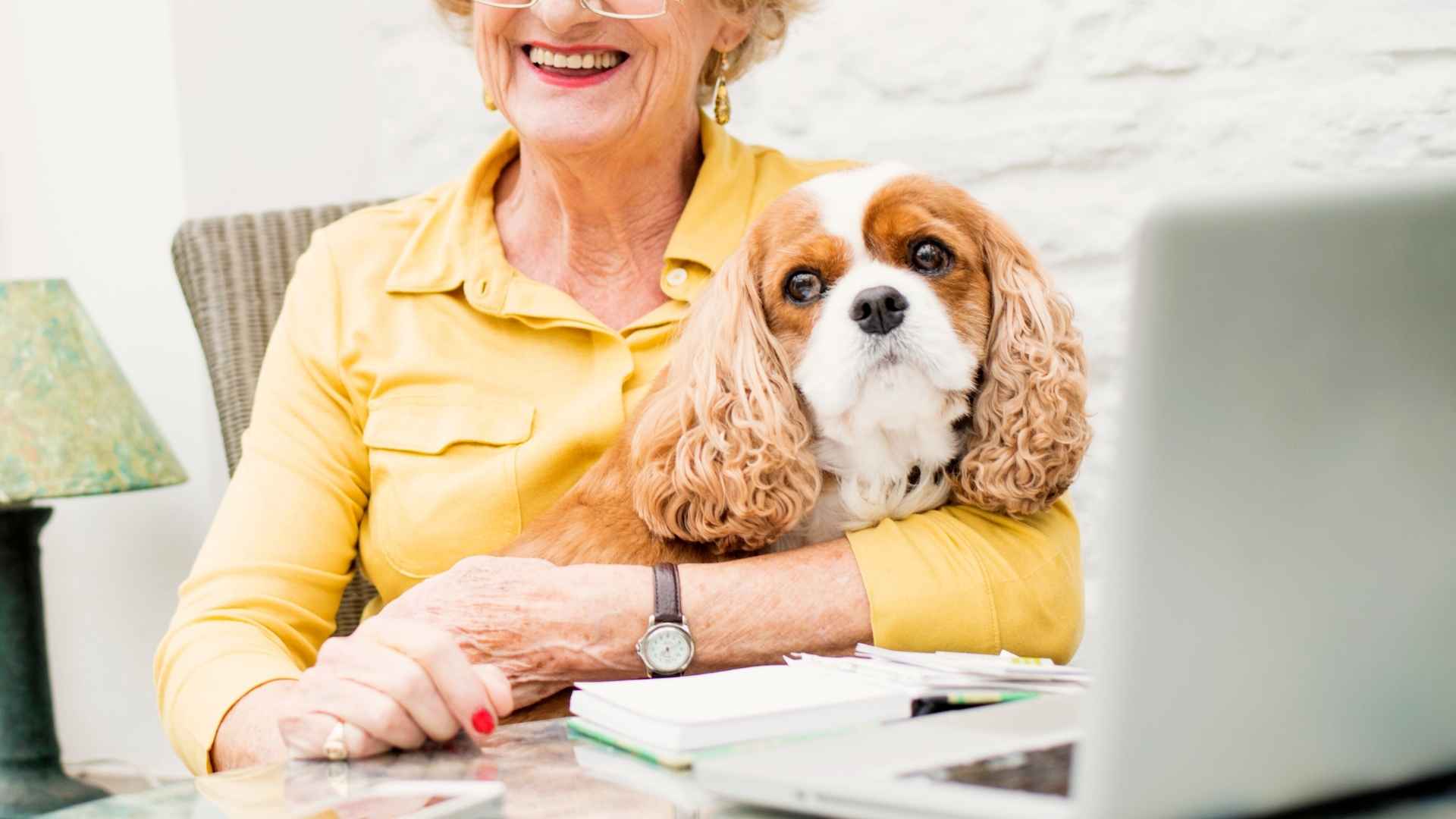As we grow older, companionship takes on a deeper meaning, especially when it comes from a loyal, four-legged friend. For many seniors, dogs offer more than love and company: they bring joy, purpose, and health benefits that enhance day-to-day life. Research consistently shows that dog ownership can reduce feelings of loneliness, lower blood pressure, boost mood, and even encourage physical activity. For older adults, especially those living alone, a devoted dog can be a true game-changer.
But not all breeds are equally suited for senior living. While puppies may be cute, their boundless energy and training needs can be overwhelming. Seniors tend to benefit more from clever, easy-to-train, low-maintenance dogs, the kind of companions that fit seamlessly into a quieter lifestyle yet still spark joy and encourage gentle movement.
In this article, we highlight 7 intelligent and senior-friendly dog breeds known for their calm demeanor, adaptability, and affectionate nature. Whether you live in a cozy apartment, an active retirement community, or a quiet home with regular visits from family and grandchildren, there’s a smart, loving breed out there ready to match your pace and your heart.
Clever Dog Breeds For Seniors
1. Cavalier King Charles Spaniel
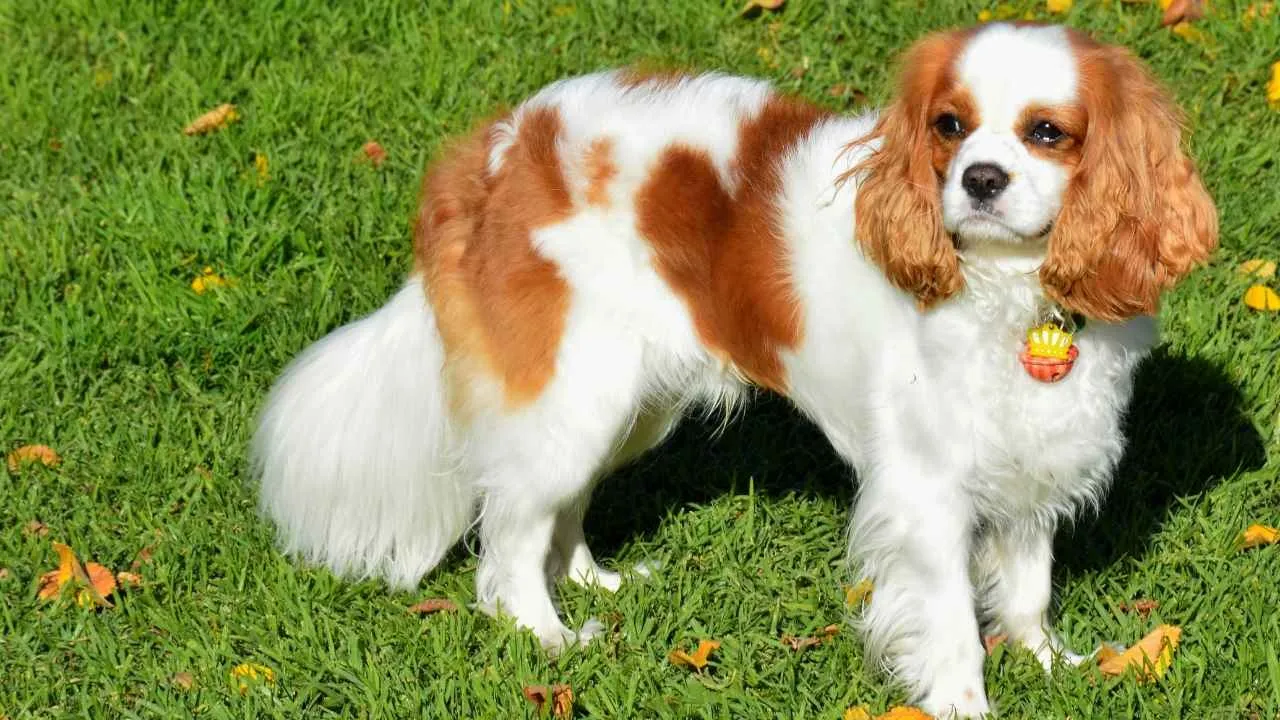
Key Points:
Small, adaptable size
Extremely affectionate
Easygoing and trainable
Why they are suitable for seniors?
Cavaliers are incredibly gentle and affectionate, making them ideal emotional companions for older adults. They’re lapdogs through and through, always happy to snuggle close and offer quiet comfort.
Their eager-to-please nature means they respond well to training with minimal effort. Basic commands, potty routines, and social behaviors are easily instilled, even by first-time or older dog owners.
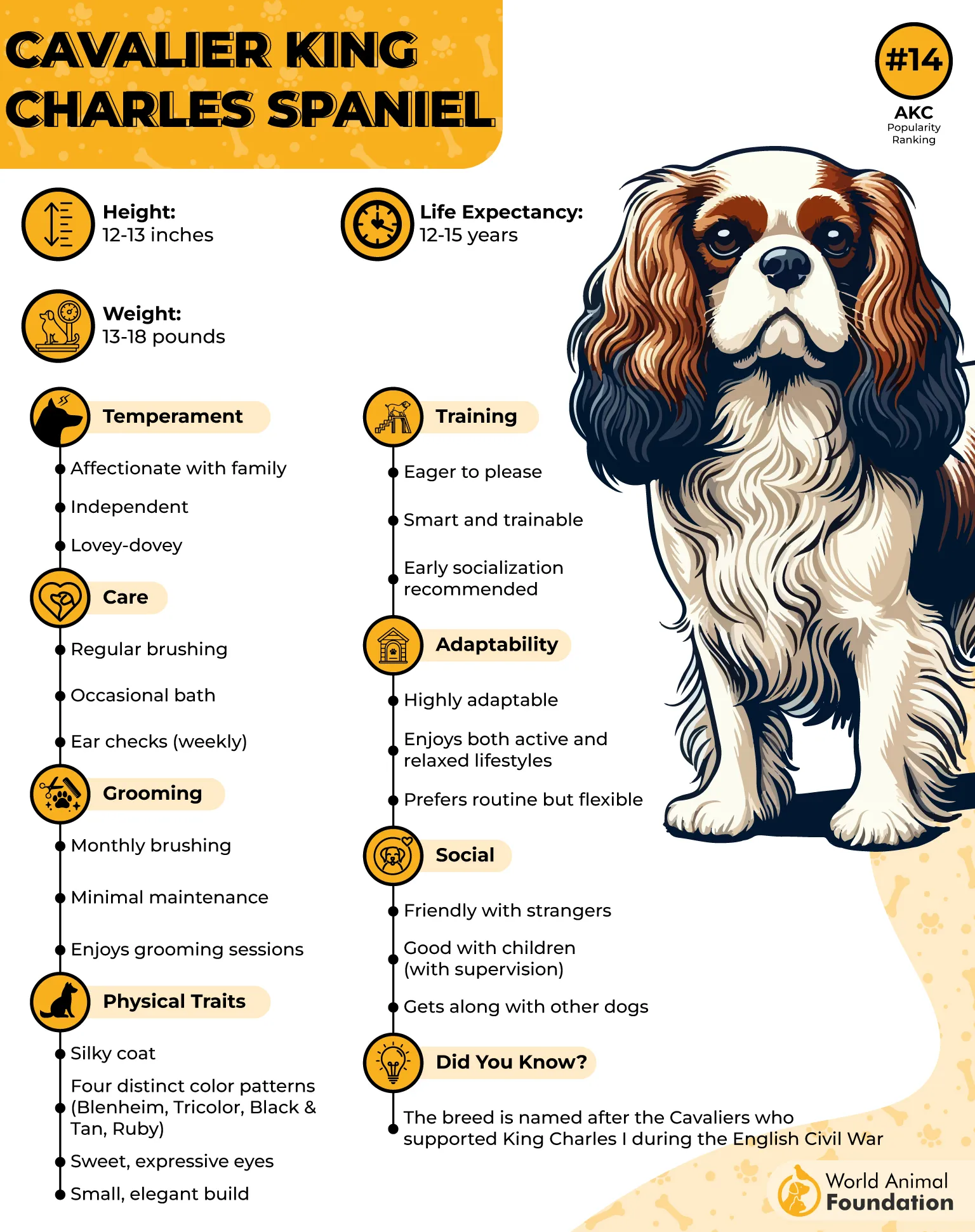
Despite their long coats, grooming is relatively simple; regular brushing is usually enough. They don’t shed excessively and rarely develop odor, keeping things tidy around the home.
With their small size and moderate energy levels, a couple of short walks and some indoor play satisfy their needs, as suggested by Hill’s Pet. They thrive in calm, cozy environments, making them a perfect fit for apartments or smaller homes.
2. Havanese
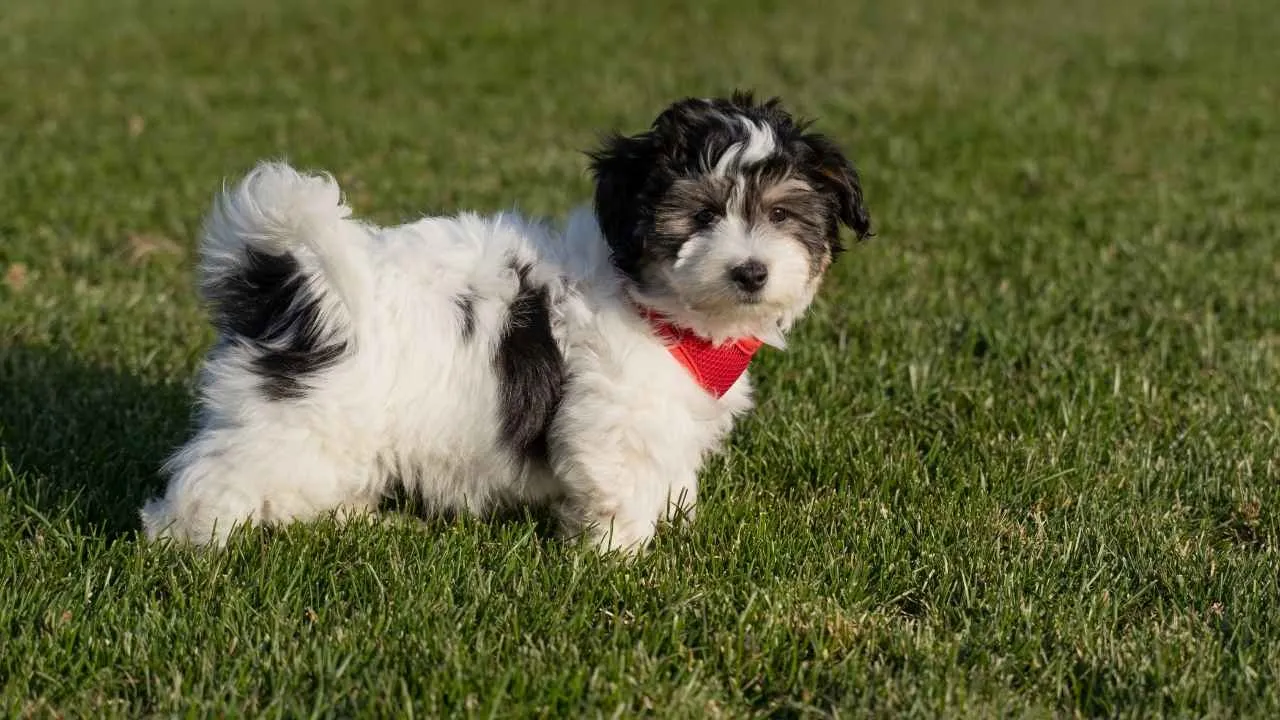
Key Points:
Social and cheerful
Easily trainable
Why they are suitable for seniors?
Havanese are bubbly little charmers that love human company. Their friendly, people-oriented personalities help seniors feel connected and engaged, especially during quieter days.
These small dogs are bright and pick up on routines and training quickly. Whether it’s leash walking, basic commands, or house manners, they adapt swiftly and without resistance.
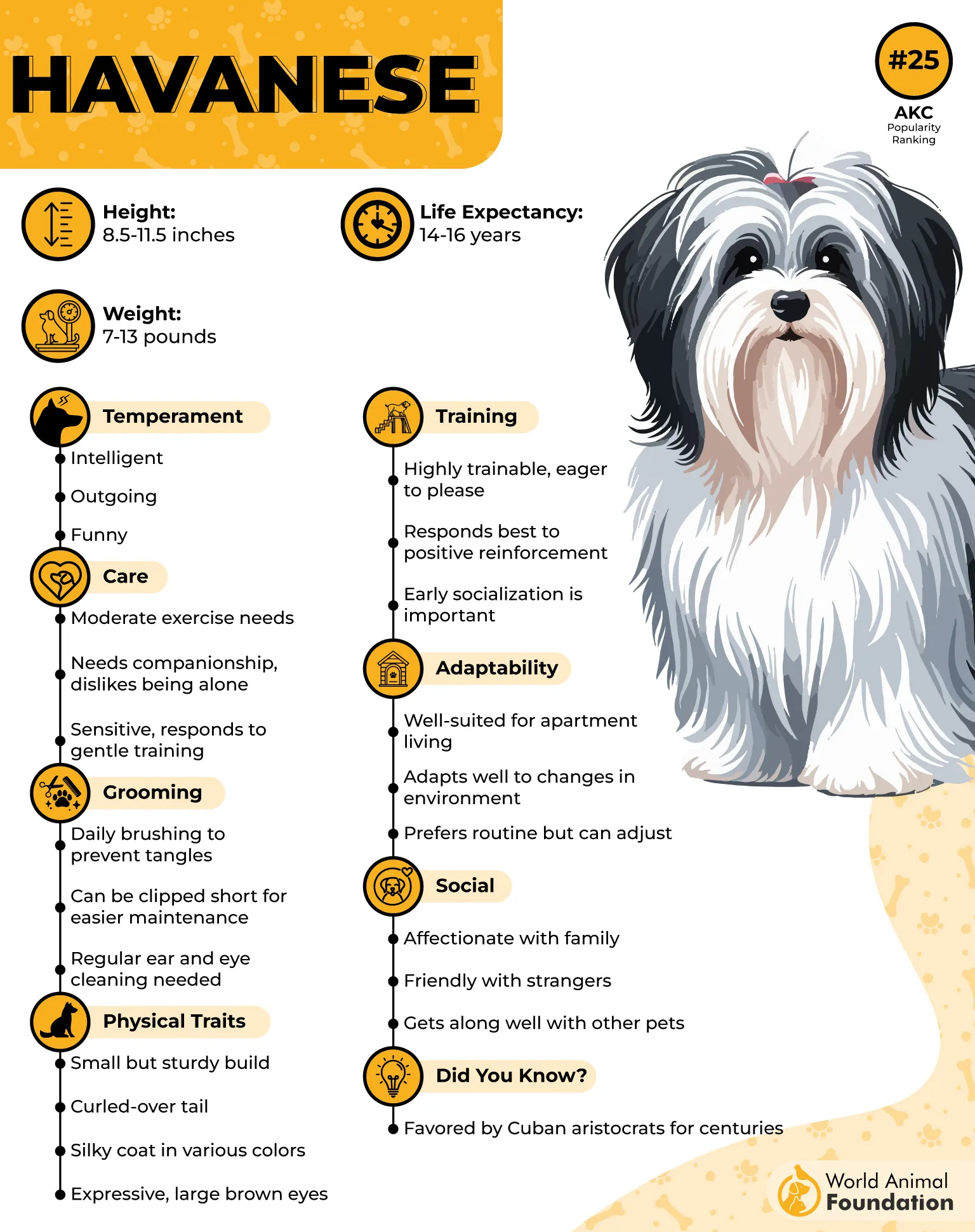
Though their silky coat needs some brushing, their low-shedding fur is great for allergy-sensitive owners. A regular “puppy cut” can make coat care even easier.
Havanese are content in smaller living spaces and don’t demand much exercise; some indoor play and a light daily walk keep them happy. They’re also great conversation starters in social settings.
3. Brussels Griffon
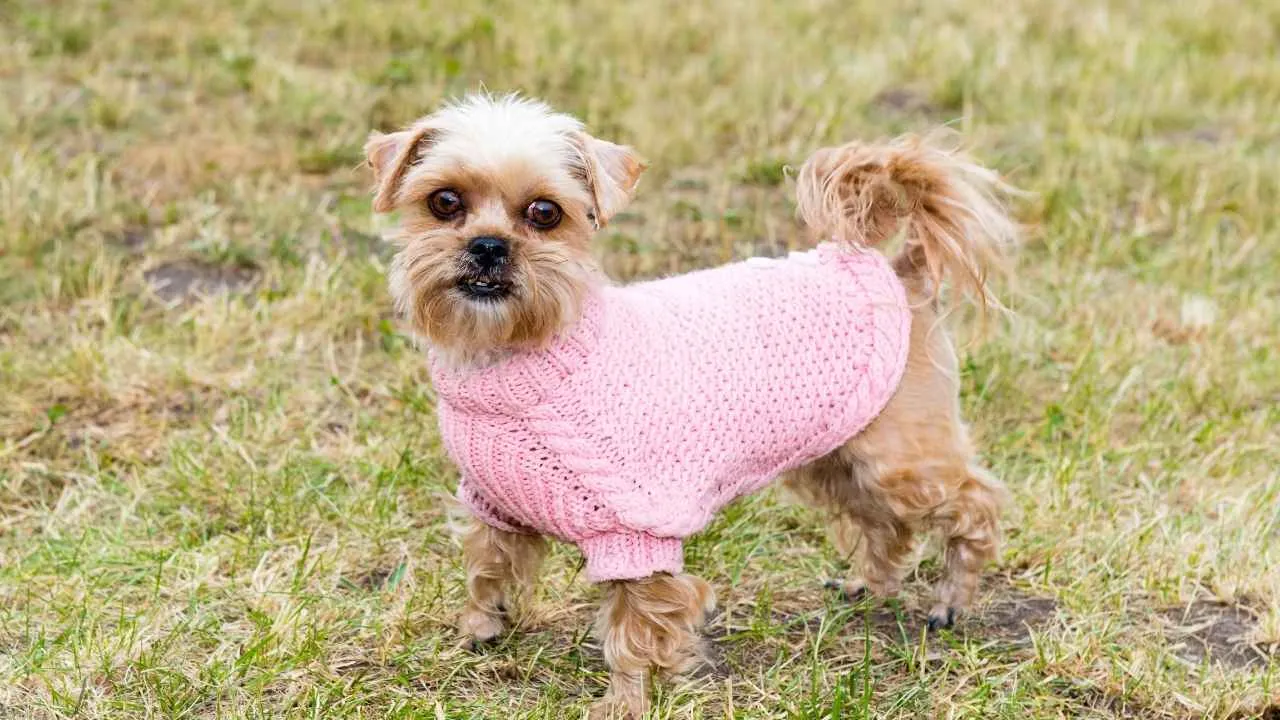
Key Points:
Compact and low-energy
Loyal and cuddly
Minimal grooming (especially rough-coated)
Why they are suitable for seniors?
With their expressive faces and quiet loyalty, Brussels Griffons become deeply attached to their humans. They’re the definition of a “velcro dog”, happy to spend hours by your side.
Though they have a sensitive side, their intelligence allows them to adapt quickly to routine and indoor life. A patient hand and consistent rhythm are all they need.
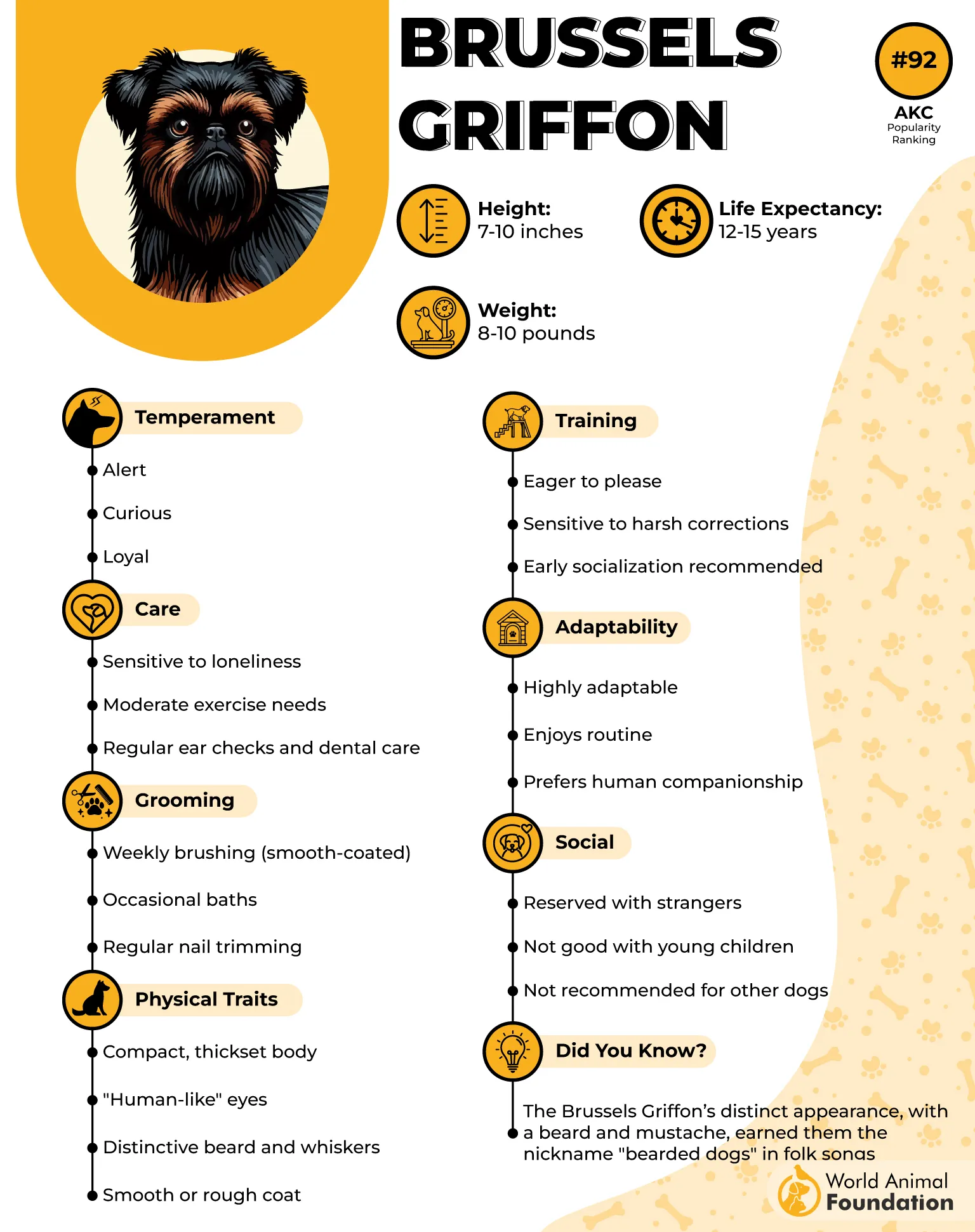
Maintenance is simple: rough-coated types only need weekly brushing, and even smooth-coated ones are fairly low-effort. Their small size also means minimal mess and no heavy lifting.
They don’t require strenuous activity. A few steps outside or playful time indoors easily tires them out, making them excellent companions for low-mobility or homebound seniors.
4. Papillon
Key Points:
Extremely intelligent
Low grooming needs
Compact and lively
Why they are suitable for seniors?
Papillons are smart little dogs full of joy. Their cheerful nature and responsiveness make them emotionally uplifting pets that brighten a senior’s daily routine.
PetMD states that they’re very quick learners, often excelling in obedience with just a few repetitions. For seniors who enjoy a mentally engaging bond with their pet, Papillons deliver big on clever companionship.
Despite their elegant appearance, their grooming needs are moderate; a few brushings per week keep them looking sharp. They don’t shed heavily and rarely need professional grooming.
Papillons are light-footed and adapt well to smaller homes or apartments. They enjoy short bursts of play and light walks but will just as happily curl up in your lap when it’s time to relax.
5. Miniature Schnauzer
Key Points:
Highly trainable
Moderate energy
Low shedding, hypoallergenic
Why they are suitable for seniors?
Mini Schnauzers have spunky personalities that make everyday life more fun. They’re alert, affectionate, and deeply devoted to their owners, often forming lifelong bonds.
They’re fast learners, eager to engage in training, and love structured routines—perfect for seniors who appreciate predictability. They’re also great little watchdogs without being yappy.
Their wiry coats don’t shed much, which keeps living areas tidy. While they do need regular trims, many seniors find grooming to be a fun, shared bonding activity or simply opt for professional grooming every few months.
Their energy is moderate; they love walks and games, but don’t need to be constantly entertained. They do best with someone who enjoys companionship and occasional outdoor strolls.
6. Border Terrier
Key Points:
Energetic yet manageable
Low grooming needs
Strong bond with owners
Why they are suitable for seniors?
Border Terriers are cheerful, sturdy little dogs that offer the perfect blend of spirit and loyalty. Though bred to work, they have an affectionate, people-loving side that makes them easy to live with and a joy to be around.
They are naturally intelligent and responsive to training, especially when taught with patience and positive reinforcement. They’re quick to adapt to routine, and they enjoy having a purpose, even if it’s just being your shadow.
Grooming is minimal; an occasional brush is usually all they need to keep their wiry coat in good shape. They don’t shed heavily and are considered low-maintenance on the grooming front.
While they enjoy regular walks and active play, their small size makes their energy levels manageable. They’re happy with short outings and thrive in a cozy home where they can be close to their person.
7. Pomeranian
Key Points:
Small and lightweight
Lively and affectionate
Good alert companion
Why they are suitable for seniors?
Pomeranians are tiny dogs with big personalities, making them a delightful companion for seniors seeking a pet with energy but not excessive demands. Weighing just 3–7 pounds, they’re easy to carry, groom, and cuddle, ideal for apartment living or downsized spaces.
Their boldness and curiosity keep life interesting, and they’re often content with indoor play and short daily walks. Despite their spirited nature, they are deeply affectionate and bond closely with their owners.
Poms also make excellent alert dogs, quick to notify their humans of visitors or unusual sounds, without requiring guard-dog energy. They enjoy attention and thrive in environments where they’re pampered and included.
As per AKC, while their fluffy double coat does need regular brushing to stay neat, their grooming needs are predictable and can be managed at home or through routine grooming visits. With their bright eyes and loving temperament, Pomeranians bring charm and joy to senior households.
Conclusion
Choosing the best dog breed for seniors is about more than just looks; it’s about compatibility, care needs, and lifestyle. These affectionate dogs tend to form strong bonds with their owners, making them great companions that provide emotional support and daily joy.
Moderate exercise needs are a consistent feature among these breeds, helping seniors stay active without overwhelming demands. While some breeds have short coats and are easier to groom, others may require regular grooming or occasional professional grooming, but many are considered hypoallergenic dogs and shed very little, ideal for those sensitive to dog hair or allergic reactions.
The American Kennel Club and senior living resources frequently recommend that these best dogs for seniors are trainable and calm. Whether in a home or a senior living community, these smaller breeds offer the right balance of energy, companionship, and ease of pet care.
In the end, the best dog breeds for seniors are those that bring joy, routine, and a sense of purpose to daily life. With the right match, a furry companion becomes not just a pet, but a loyal friend that makes every day a little brighter.


